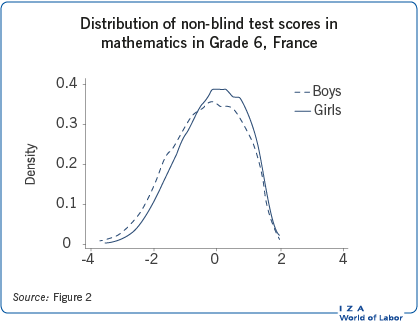Elevator pitch
There is little to no consensus in the academic literature over whether centralised, standardised exams are better for students than teacher assessments. While a growing body of evidence from economics highlights bias in teacher assessments, educationalists and psychologists point to the harm caused by high-stakes exam-related stress and argue that exams and teacher assessments generally agree very closely. This lack of academic consensus is reflected in policy: a wide variety of assessment methods are used across (and even within) countries. Policymakers should be aware of the potential for inequalities in non-blind assessments and consider carefully the consequences of relying on a single method of assessment.

Key findings
Pros
- Regular contact allows teachers to form a richer picture of students’ abilities.
- Teachers can assess a much broader curriculum than even the best-designed standardised tests.
- Regular opportunities for assessment reduce the randomness inherent in sitting a limited number of exams.
- Teachers can (implicitly) account for student (dis)advantage in a way not possible for standardised tests.
Cons
- There is significant variation in the assessments different teachers make even of identical pieces of work.
- There is also (likely) significant variation in the criteria used by teachers to assess their students.
- The variation mentioned above mean teacher assessments are likely to be biased against some groups of students.
- The variation in teacher assessments makes it difficult to compare scores across teachers and schools (and can harm students assessed by particularly strict teachers).
Author's main message
Studies from the US and Europe have revealed evidence of gaps between teacher assessed grades and those from externally marked exams that are correlated with students’ characteristics, suggestive of potential bias in teacher assessments. Several mechanisms have been explored in the literature. Teachers may use factors other than ability such as behavior, or may favor types of students who have performed well in previous years, or those who are among the minority group (e.g. gender) in a field. In terms of consequences, some studies show that biased teacher assessments in certain subjects, such as maths, can impact pupil’s progress, their choice of academic track, and even their degree choices.
This article first appeared on IZA World of Labor in June 2025. Reproduced with permission



